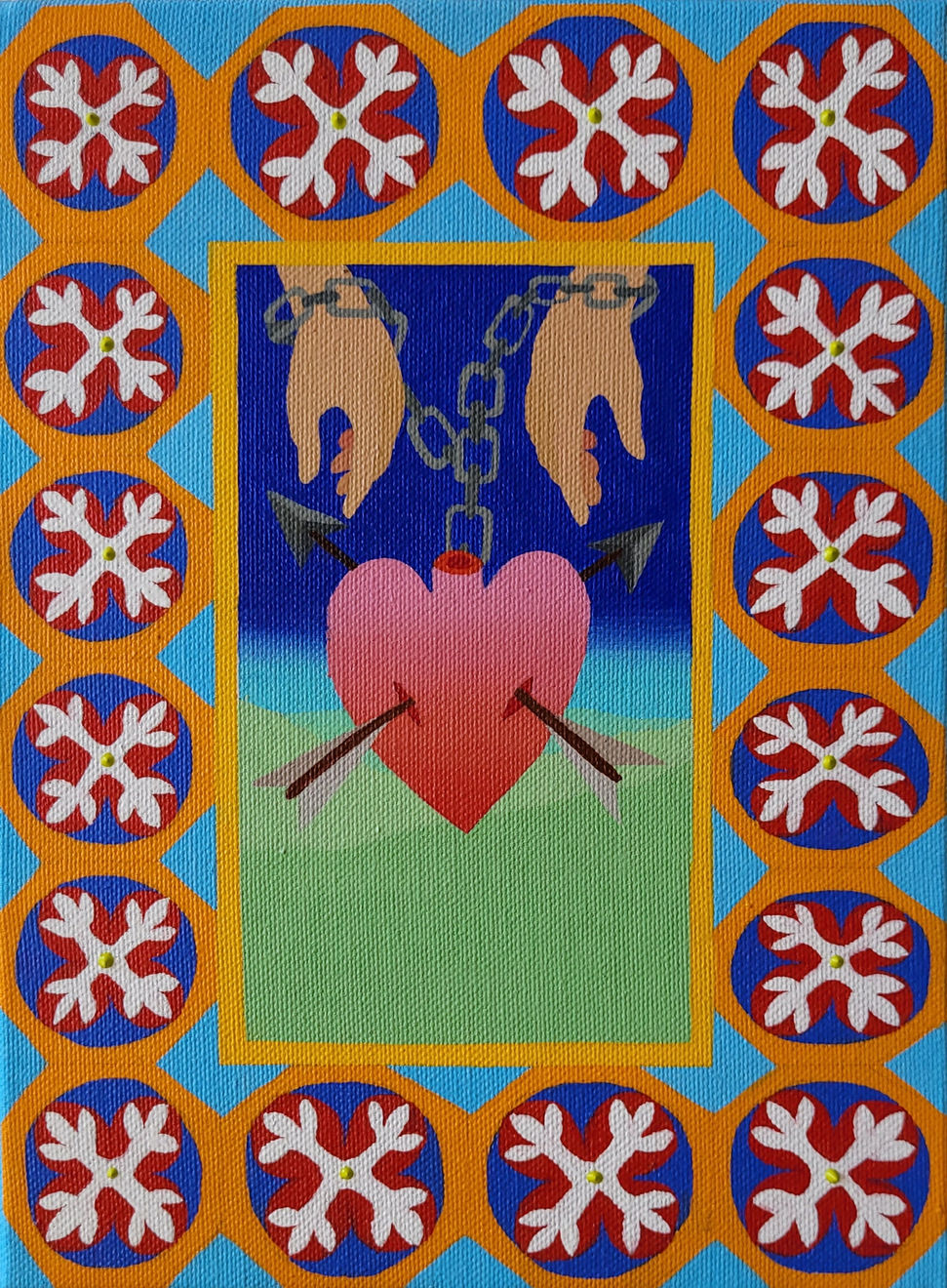Monika Radžiūnaitė Lithuanian, b. 1992
O man varge nepatogu / Et vix sum incommoditas / Ir bijau, kad turėčiau tau trukdyti // And I’m uncomfortable being poor / Et vix sum incommoditas / And I’m afraid I’d be troubling you, 2024
Aliejus ant drobės / Oil on canvas
24 x 18 x 2 cm
Monika Radžiūnaitė (b. 1992, Lithuania) is a painter who obtained MA degree at the Vilnius Academy of Arts in 2021, Painting Department. Her work is characterised by interpreting history, reviving...
Monika Radžiūnaitė (b. 1992, Lithuania) is a painter who obtained MA degree at the Vilnius Academy of Arts in 2021, Painting Department. Her work is characterised by interpreting history, reviving elements of medieval and early renaissance paintings, and using cultural references in painting plots.
In her paintings, Radžiūnaitė talks about foolishness and the change in cultural meanings over the course of history. Her works are based on ignorance, foolishness, and/or error. This creative strategy as a conscious state of foolishness frees the artist from the need to know the true or historical meanings of the images or the circumstances of their formation. Radžiūnaitė raises questions about the possibility of reconstructing the Middle Ages and the limitations of such possibility determined by historical circumstances. Past, present, and future are difficult to measure and understand objectively, while cultural continuity and the influence of past epochs on contemporaneity can be deconstructed ironically.
In her paintings, Radžiūnaitė talks about foolishness and the change in cultural meanings over the course of history. Her works are based on ignorance, foolishness, and/or error. This creative strategy as a conscious state of foolishness frees the artist from the need to know the true or historical meanings of the images or the circumstances of their formation. Radžiūnaitė raises questions about the possibility of reconstructing the Middle Ages and the limitations of such possibility determined by historical circumstances. Past, present, and future are difficult to measure and understand objectively, while cultural continuity and the influence of past epochs on contemporaneity can be deconstructed ironically.





